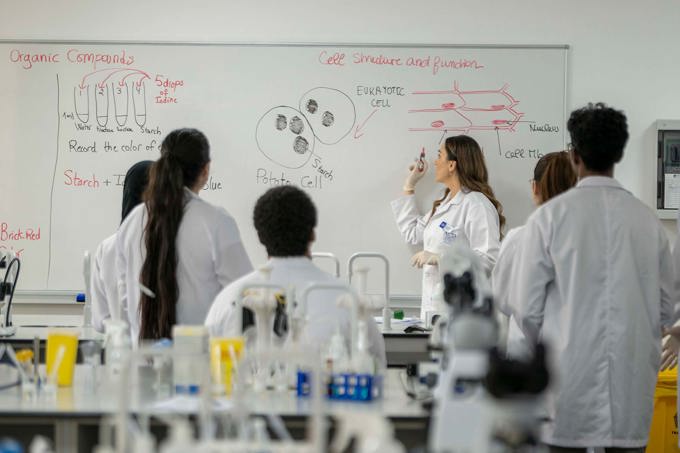
The American University in Dubai (AUD) has achieved a significant milestone by securing an international joint white paper research grant through the TIEC University Partnership Accelerator. The award, made in collaboration with the prestigious Mayo Clinic in the United States, supports a joint initiative titled “Toward a Dialysis‑Free Future: AUS–UAE Collaboration to Innovate Polycystic Kidney Disease Management.” This partnership demonstrates AUD’s commitment to advancing high‑impact medical research and expands the university’s global research footprint.
Why This Grant Matters for Global Health
Polycystic kidney disease (PKD) is a progressive condition that can lead to kidney failure, requiring dialysis or organ transplantation. Current treatments focus on managing symptoms and slow disease progression, but there is a critical need for new therapies that can reduce or eliminate the need for dialysis. AUD’s research project aims to develop best‑practice recommendations and novel treatment approaches that can significantly improve patient outcomes worldwide.
Collaboration between AUD and Mayo Clinic
The partnership brings together the expertise of Dr. Muriel Tahtouh Zaatar, Chair of the Department of Biological and Physical Sciences at AUD, and Dr. Fouad Chebib, Director of the PKD Center of Excellence and Research Chair of Nephrology & Hypertension at Mayo Clinic. By combining AUD’s strengths in multidisciplinary research and Mayo Clinic’s clinical experience, the project creates a robust platform for translational research that bridges laboratory discoveries and patient care.
Focus on Polycystic Kidney Disease (PKD)
Polycystic kidney disease is one of the most common genetic disorders. By targeting therapies that address the underlying cyst formation and kidney damage, researchers hope to slow disease progression and reduce the need for dialysis. AUD’s project will examine innovative drug targets, imaging modalities, and patient monitoring tools to create a comprehensive set of guidelines for clinicians.
The Research Project: Toward a Dialysis‑Free Future
Goals and Expected Outcomes
The project’s primary objectives are to:
- Identify molecular pathways involved in cyst growth and kidney fibrosis.
- Test therapeutic compounds that can halt or reverse cyst development in pre‑clinical models.
- Develop predictive imaging and biomarker tools for early detection of kidney damage.
- Create a set of best‑practice recommendations that can be implemented by nephrologists worldwide.
By meeting these goals, the collaboration aims to deliver evidence‑based strategies that clinicians can use to reduce the burden of dialysis and improve quality of life for PKD patients.
Methodology and Innovative Approaches
The research adopts a multidisciplinary approach that encompasses genetics, cell biology, pharmacology, and clinical epidemiology. Key methodologies include:
- CRISPR‑based gene editing to study cystin functions in kidney organoids.
- High‑throughput screening of small‑molecule libraries to identify potential inhibitors.
- Longitudinal imaging studies in animal models to track cyst progression.
- Data integration from electronic health records to develop predictive algorithms.
Such methods promise not only to generate actionable clinical data but also to push the boundaries of personalized medicine in nephrology.
Impact on Students, Faculty, and the Community
Student Opportunities and Experiential Learning
Academic partners across AUD will have the chance to involve undergraduate and graduate students in every phase of the research cycle. From laboratory work to data analysis, students gain hands‑on experience in a real‑world clinical research context. As a result, they acquire skills that are highly valued by employers in pharma, biotech, and healthcare technology companies.
Faculty Research Careers
For faculty members, the grant opens new avenues for establishing research centers, securing follow‑up funding, and publishing in high‑impact journals. The collaboration also strengthens AUD’s reputation as a hub for transnational research, positioning its scholars for global career opportunities.
Broader Healthcare Innovation
The outcomes of the project have implications beyond PKD. The methodologies developed for cyst detection, risk stratification, and therapeutic monitoring can be adapted to other chronic kidney diseases, cardiovascular disorders, and even oncology. The grant, therefore, contributes to a broader movement toward precision health in the UAE and internationally.
How AUD Supports Research Excellence
Infrastructure and Resources
AUD provides state‑of‑the‑art laboratories, animal research facilities, and advanced imaging equipment. The university’s Library and digital research portals give scholars ready access to the latest journals and data archives, enabling efficient literature reviews and data mining.
Collaborative Ecosystem
Beyond the Mayo Clinic partnership, AUD maintains relationships with local hospitals, industry partners, and government agencies. These connections facilitate rapid translation of research findings to clinical settings and support the development of market‑ready solutions.
What Aspiring Researchers Can Learn
Building International Partnerships
The AUD–Mayo relationship illustrates how strategic alignment around shared scientific goals can attract funding and create a platform for joint innovation. Aspiring researchers should identify potential collaborators whose expertise complements theirs, and establish clear communication channels and mutual benefits early in the partnership.
Securing Competitive Grants
Securing a joint white paper grant requires a clear, patient‑centered vision, a strong interdisciplinary team, and proof of preliminary data. The audit team found that AUD’s proposal emphasized translational impact, rigorous methodology, and a structured plan for dissemination—elements that reviewers appreciate.
Conclusion
The joint grant with Mayo Clinic marks a pivotal step forward for AUD and for the global kidney‑health community. By integrating multidisciplinary science and clinical expertise, the project promises tangible advances in personalized treatment for Polycystic Kidney Disease. AUD’s role as a collaborator, educator, and innovator positions it to deliver sustained improvements in patient care and to inspire the next generation of researchers.
Whether you are a prospective student, a research scientist, or a healthcare practitioner, this partnership reflects the opportunity to be part of a transformative movement toward a dialysis‑free future. Consider exploring AUD’s academic programs, applying to student‑research roles, or reaching out to faculty for collaborative efforts. Your engagement can help bring life‑changing healthcare outcomes to patients worldwide.

